- Massive Range
- FREE UK Delivery
- Rapid Dispatch
- Massive Range
- FREE UK Delivery
- Rapid Dispatch
- Massive Range
- FREE UK Delivery
- Rapid Dispatch
Home » What’s the Difference Between a Dome Nut and a Nyloc Nut? Exploring Our Range
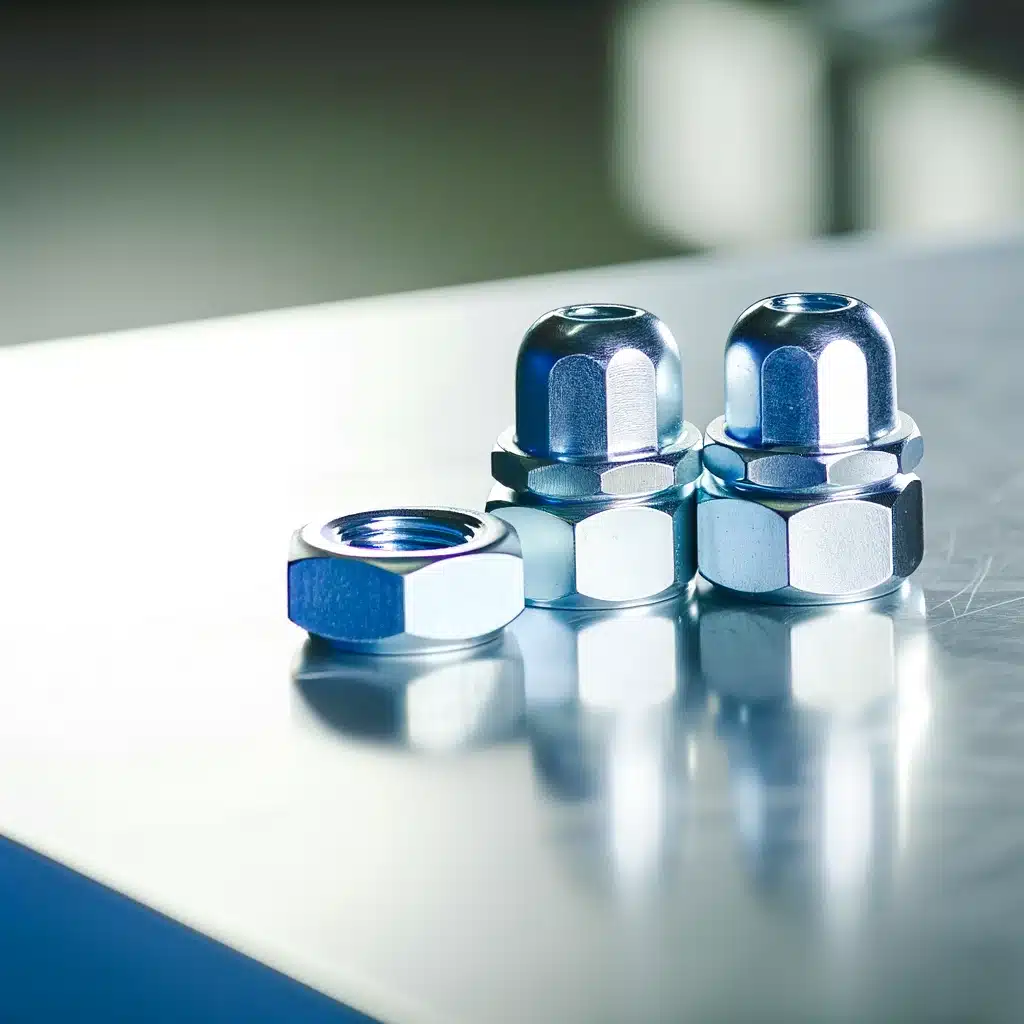
Dome nuts and nyloc nuts have a reputation for being versatile fastening solutions. The dome nut’s rounded cap combines safety with aesthetics, while the nyloc nut’s nylon insert offers dependable locking power.
In addition to their unique attributes and benefits, each nut type has its own advantages and disadvantages, making the choice between them crucial based on the project at hand.
The purpose of this guide is to dissect the properties and advantages of dome and nyloc nuts, enabling you to select the most appropriate nut for your specific application, regardless of whether you are looking for visual finesse or steadfast locking capacity.
Let’s get into it…
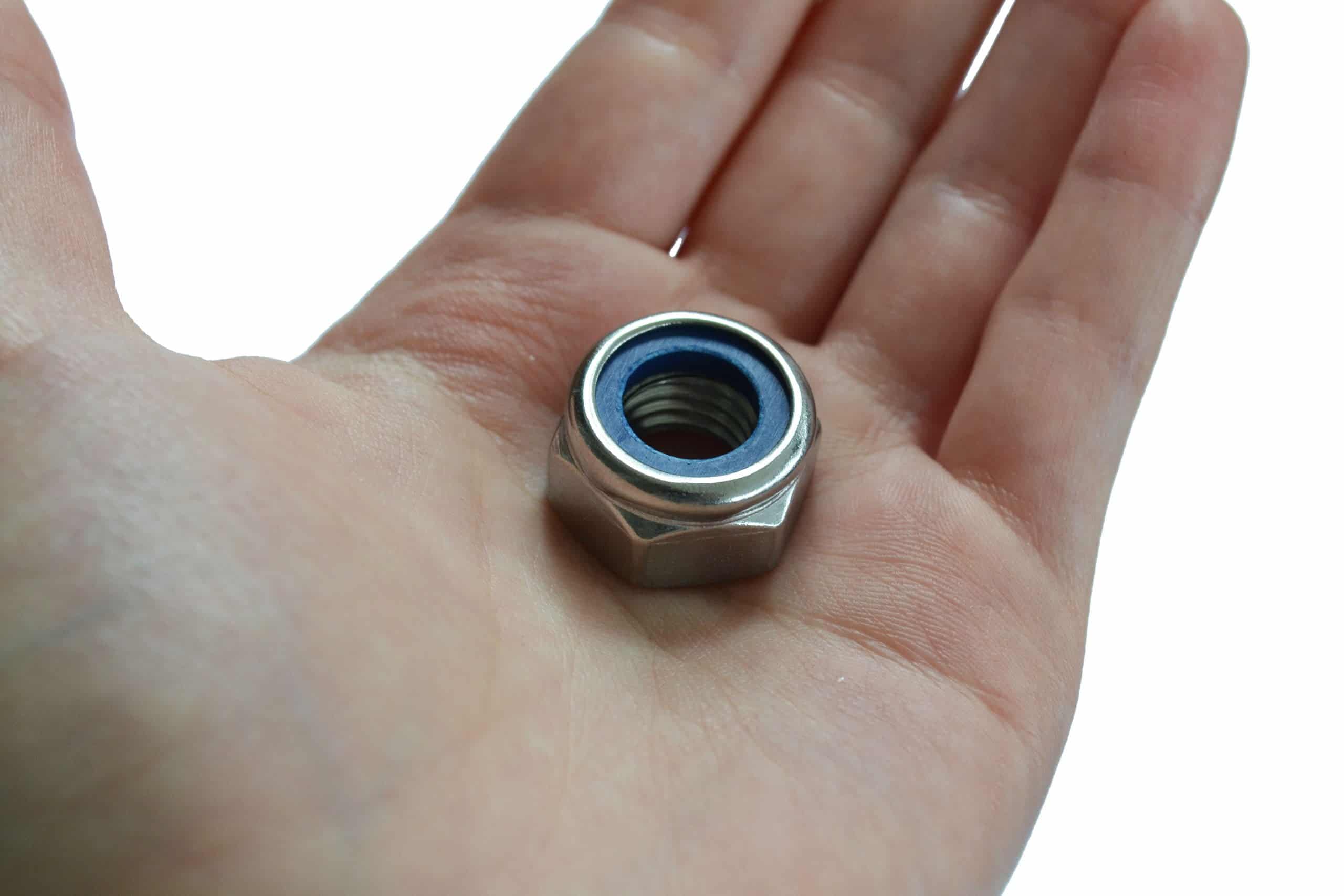
Nyloc nuts, also known as nylon insert lock nuts, have a unique mechanism that prevents loosening under vibration and torque. During tightening, the nylon insert at the top of the nut acts as a resilient locking feature. For applications such as machinery or automotive where the joint is subject to regular movement or vibration, they provide a secure hold.
Our range of nyloc nuts, like the M5 nut, provides our customers with a versatile selection. Crafted from A4 grade stainless steel, these nuts are not only reliable in their locking ability but also boast excellent resistance to corrosion. They are especially suitable for outdoor use or in marine environments, where exposure to the elements demands a fastener that can withstand the rigors of weather and water without rusting.
Choosing a stainless steel nyloc nut from our A4 grade selection ensures durability and peace of mind. Whether you’re securing a vital component on a boat or protecting a motorcycle’s fairing on a bumpy ride, our nyloc nuts offer a solution that combines mechanical security with stainless steel’s inherent resilience. We offer a wide range of locking fasteners, from the commonly used M10 to the more substantial M16 and M20 size.
This is a quick list of why one would choose to use A4 grade nyloc nuts:
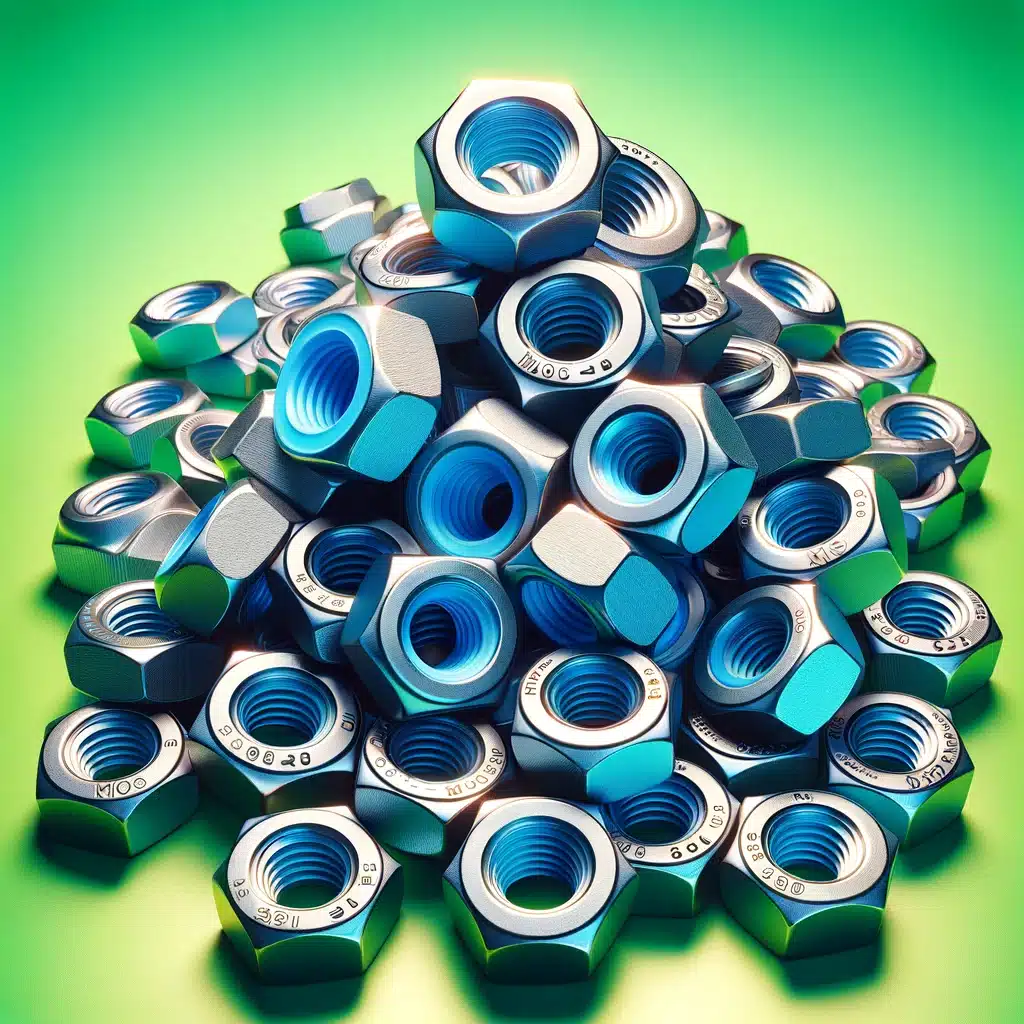
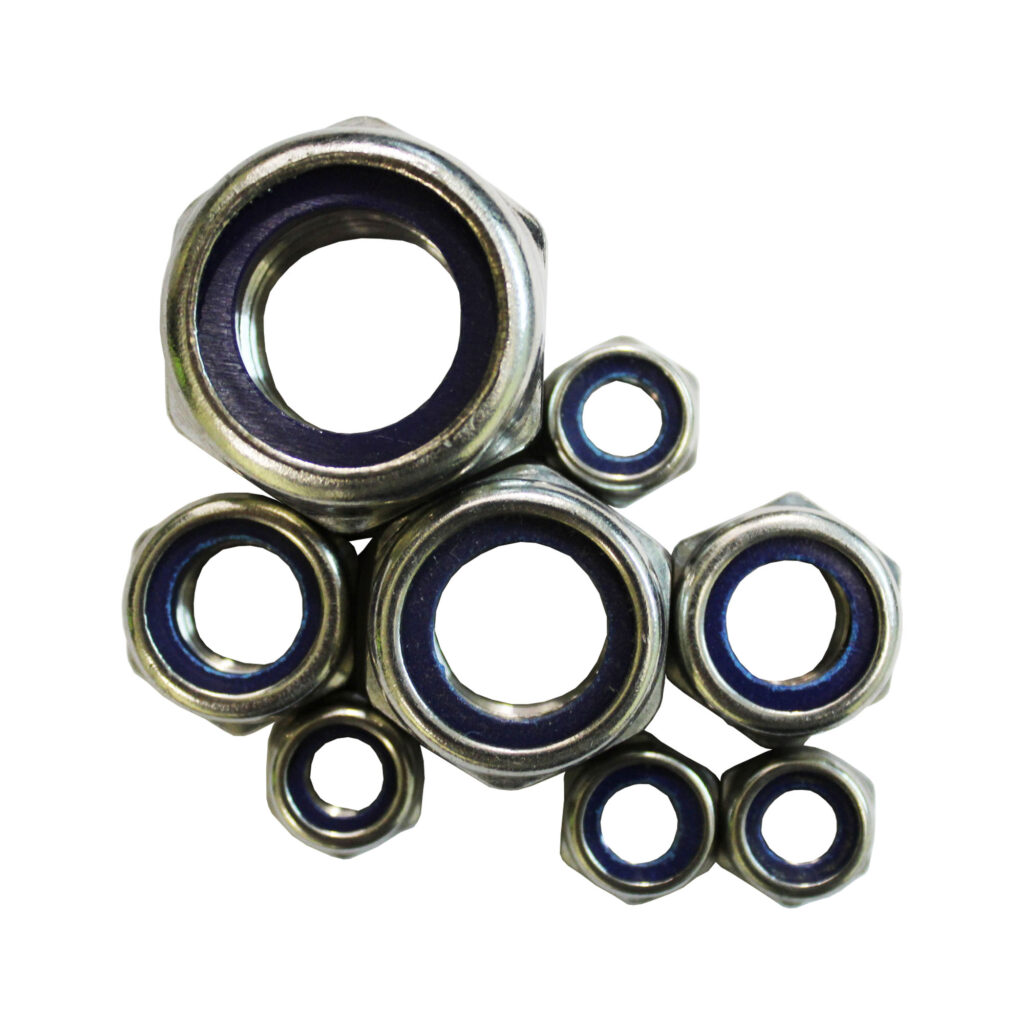
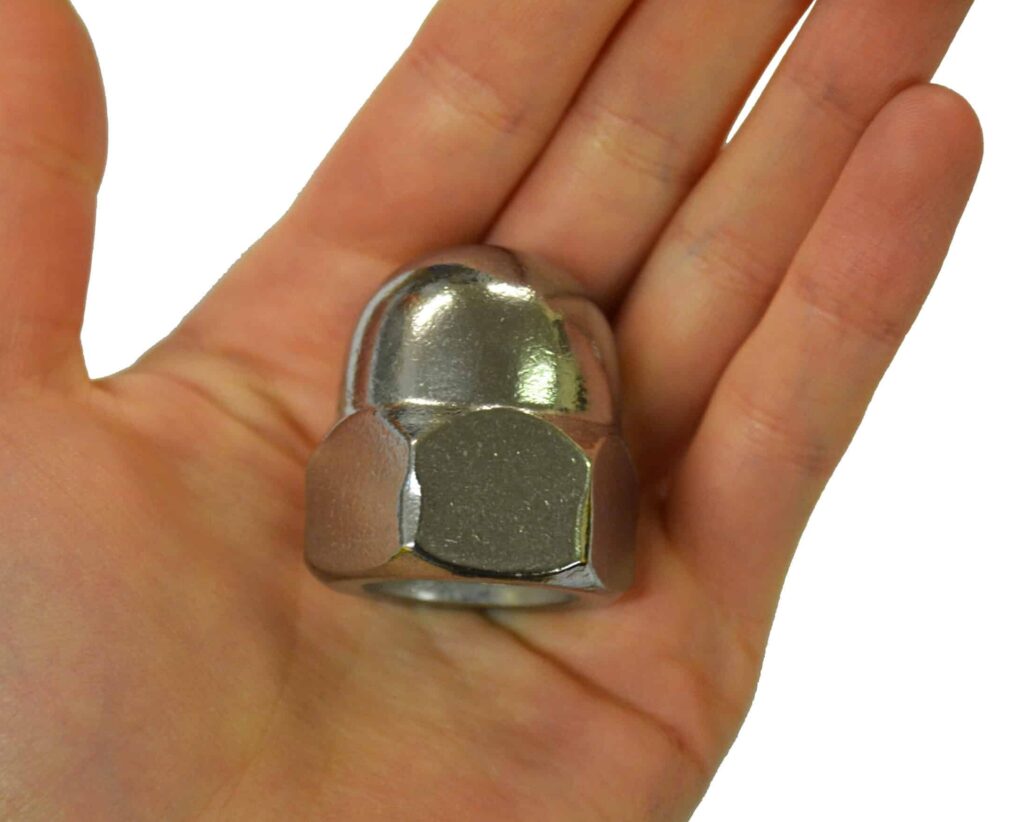
Dome nuts offer a visually pleasing finish to any assembly with their distinctive rounded cap. Stainless Steel M4 dome nuts from Speciality Metals exemplifies this aesthetic appeal, adding a touch of elegance to exposed fastener applications. The sleek design of dome nuts not only complements the appearance of projects but also serves a functional safety purpose. In public spaces and consumer products where exposed bolt threads could be a safety hazard, dome nuts are designed with smooth, rounded ends to prevent snagging.
We offer a wide range of dome nuts from the modest M4 size to the robust M16 (16mm). Whether the project is architectural, such as a public installation, where safety and appearance are paramount, or design-focused, requiring sleek, clean lines, there’s a dome nut to fit the bill.
This is why dome nuts are a common selection for our customers:
When faced with the decision of whether to use a dome nut or a nyloc nut, it is crucial to consider the specific requirements of the project. Dome nuts are often selected for their aesthetic quality and safety features, making them ideal for use in consumer goods, furniture, and architectural details where the fastener is visible and interacted with by the public. On the other hand, nyloc nuts are chosen for their locking ability, which is essential in applications prone to vibration or dynamic loads, such as in automotive or industrial machinery.
For example, in a piece of playground equipment, an M10 dome nuts (10mm) would be preferable for its smooth finish and reduced injury risk.
In contrast, an M10 nyloc nuts would be more suitable for securing parts on a motorcycle, where the prevention of loosening due to vibration is critical.
Speciality Metals offers both dome and nyloc nuts in a range of sizes and grades to ensure that our customers have access to the right fasteners for their projects.
Understanding the functional differences and the conditions each nut type excels in will guide users to the optimal choice for their specific application, ensuring performance, reliability, and aesthetic suitability.
Obviously, both nylocs and dome nuts work best when installed correctly.
It’s essential to adhere to the recommended torque settings for nyloc nuts, as overtightening can compromise the nylon insert’s locking capability, while insufficient torque may not fully engage the locking feature.
Nyloc nuts are also not designed for multiple uses; the nylon insert may lose its locking ability after being removed and reinstalled. To ensure maximum reliability, always use a new nyloc nut for critical applications.
It’s equally important to consider torque settings when installing dome nuts to prevent damage to the dome’s aesthetic finish. In applications where appearance is crucial, compatible washers can distribute the load and preserve the integrity of the nut’s dome cap.
Regular inspections are essential, whether using nylocs or dome nuts, to prevent wear and loosening from occurring.
Best Practices:
Avoid rounding off the edges of nuts by using the correct size spanner or socket.
When tightening, apply a steady force until you feel the nylon insert engaging on the nyloc nut.
If nyloc nuts are subject to dynamic loads or critical holding applications, do not reuse them.
Dome nuts should be checked for signs of wear or damage that could affect their aesthetics.
We have a made a simple chart that should be helpful if you need to know what torque should be used on each size:
| Size (Metric) | Nyloc Nuts Torque (Nm) | Dome Nuts Torque (Nm) |
| M4 | 3.1 | 2.2 |
| M5 | 5.7 | 4.1 |
| M6 | 8.9 | 6.4 |
| M8 | 19.2 | 13.8 |
| M10 | 37.6 | 27 |
| M12 | 66.4 | 47.6 |
| M14 | 98 | 70.2 |
| M16 | 157 | 112.8 |
| M18 | 204 | 146.4 |
| M20 | 255 | 183 |
Speciality Metals prides itself on offering a comprehensive selection of high-quality fastening solutions to suit a diverse array of applications.
By choosing the appropriate nut for your specific needs and following best installation practices, you can ensure not only the success of your assembly but also its longevity and safety.
Trust in Speciality Metals for all your fastening requirements, where quality and expertise come together to support your projects from inception to completion.
We hope that this guide has proven to be of interest to you.
As always, thank you for checking out our blog. We hope that this helps you with your project.
Please also check out the other articles in our series. We recently wrote an article all about why penny washers are so essential for DIY tasks.
We are also proud to sell this product on our highly popular eBay store, check us out there too.
If you have any further questions, feel free to contact us.
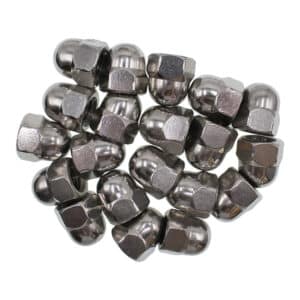
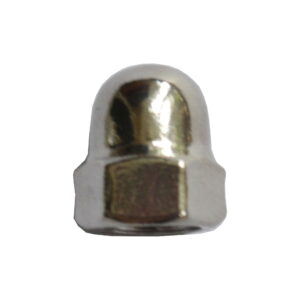
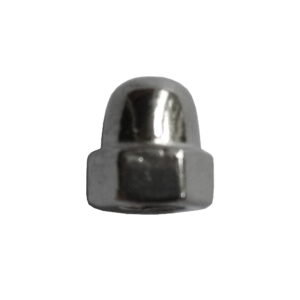
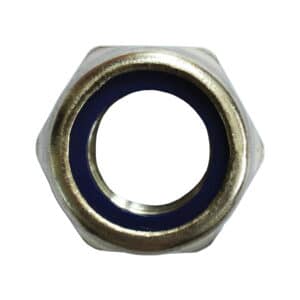
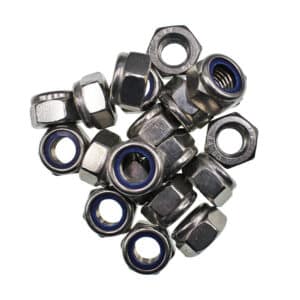
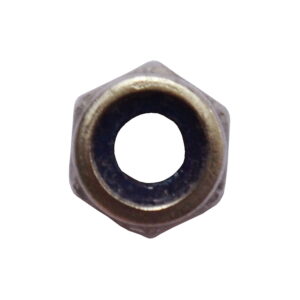
Speciality Metals
Unit 1, Farrell Street, Warrington,
Cheshire, WA1 2WW, United Kingdom
Quick Links
Payment Options
